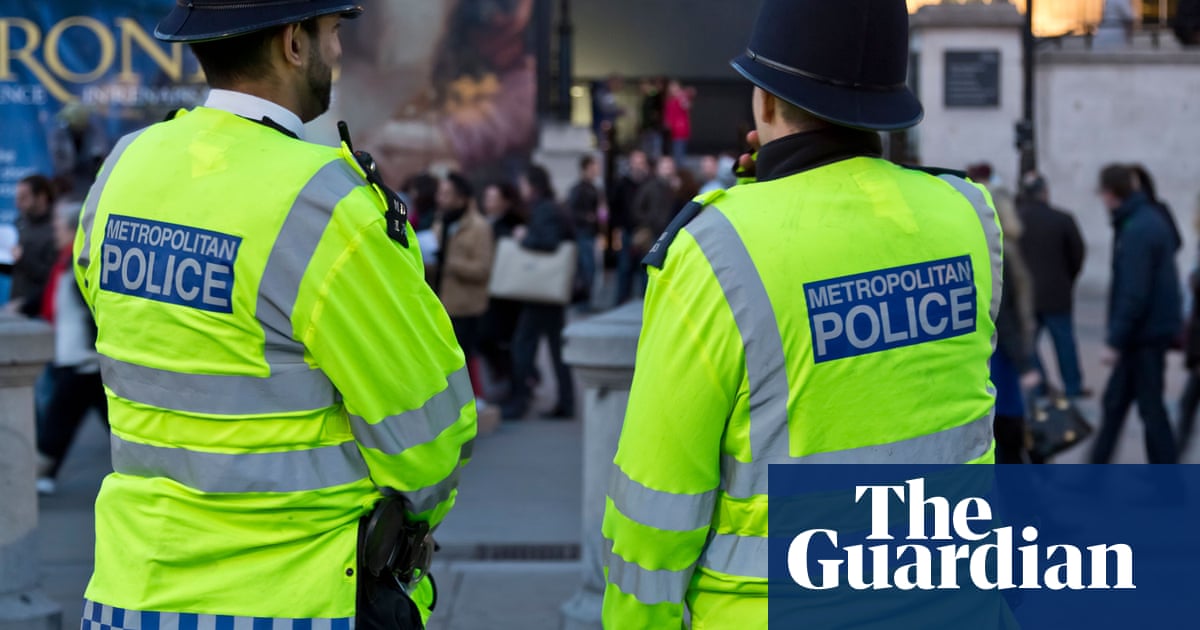Black children detained by police are 15% more likely to be “criminalised”, that is charged and put into the criminal justice system, than white children detained for similar types of offences, a study has found.
The report by the Youth Endowment Fund (YEF), which tackles youth violence, found that black children were 14.8% less likely to be offered diversion, which can include mentoring or counselling, that usually results in them avoiding getting a criminal record at an early age.
The authors of the study say they have taken into account the seriousness and prior offending record, and are thus comparing like with like. The racial gap pointed to “systemic inequities”, the report said.
The study examined almost 265,000 records of children aged 10 to 17 who were arrested by theMetropolitan policein London, or where a decision was made to take further action after a stop and search.
It is believed to be the largest study of its type and the data covers from 2015 to 2022.
The study also said children arrested in outerLondon, which tended to be whiter, were more likely to avoid being criminalised than those in inner London: “Outer London boroughs, particularly Bromley (diversion rate 66%), Bexley (65%) and Kingston upon Thames (65%), have the highest diversion rates. Inner London boroughs, such as Haringey (43%), Lambeth (42%) and Hackney (41%), show the lowest.”
Previous studies have foundracial disparities at different levels of the criminal justice system. Some say that is the result of institutional racism, which the Met has been found guilty of bythe Macpherson report into the Stephen Lawrence murder investigation in 1999, andby Louise Casey’s report into the force in 2023.
There is some anecdotal evidence that as black young people mistrust police more, they are less likely to admit their guilt, which is a prerequisite for being accepted for some diversion schemes.
The report said: “Two compounding disparities emerge for Black CYP [children and young people]: i) they faced disproportionately higher rates of police contact than CYP from other ethnic groups, and ii) once involved with the police, they received comparatively fewer diverted outcomes than their peers.
“Even after controlling for factors such as type of offence and prior arrests, Black CYP were less likely to be diverted than White CYP, with a gap of 8.88%pts. These findings are based on historical data (2015–22), which points to systemic inequities requiring attention.”
The report said that for knife crime, white children were less likely to be charged than black children. Black children arrested by the Met police were offered diversion in 17.2% of cases, while for white children that figure was 35%. This statistic did not include an adjustment for the seriousness of the alleged offending or prior arrest record.
Ciaran Thapar of the YEF said: “This important research suggests that a black child in Lambeth who is arrested for the same crime as a white child in Kingston upon Thames can expect to have a very different experience of policing and chance of being diverted from court.
“This is a worrying inconsistency … It potentially means that arrested black children are becoming disproportionately and unnecessarily criminalised by the justice system early on in their lives.”
The report said diversion appeared to reduce the rate of reoffending. It allows people at the start of their lives to avoid a criminal conviction that could blight their futures.
Thapar said: “The findings also suggest that diversion can be a highly effective way of preventing reoffending and violence. There are many organisations across London working to divert children in their communities, before they become criminalised. We should be pushing the Met towards a better, more equitable use of diversion and sustainably funding initiatives who can help them to facilitate it.”
The Met did not respond to a request for comment on the study based on the force’s own data.
